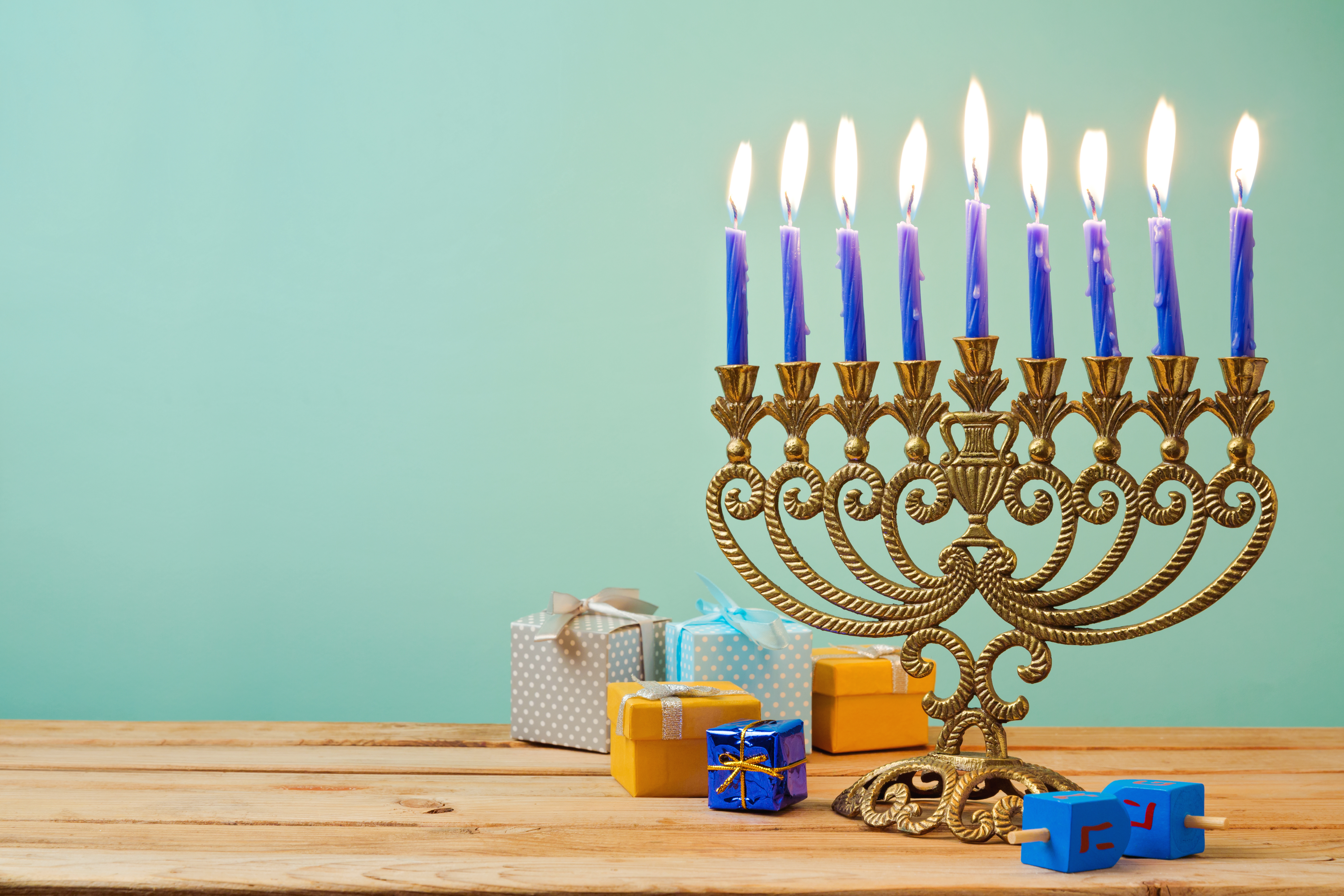The Festival of Lights
Part of the beauty of America is its diversity. Our beautiful melting pot gives us customs and cuisines from all over the world. (And as military families, we’ve seen our share of that world!) We can wear green and eat corned beef and cabbage on Saint Patrick’s Day. Have our fill of tacos and tequila on Cinco de Mayo.
We are a wondrously multicultural society. And that means we also remember that in the midst of the great is-it-too-early-to-decorate-for-Christmas debate, there are other holidays being celebrated this time of year. Like Hanukkah, for instance. So here’s a quick catch ya’ll up for those of you who’d like to learn more about this celebration.

First things first. Ignore spell check and autocorrect when it comes to spelling this right: Chanukah, Chanuka, Hanukah, Hanukkah—they’re all fine. That’s the tricky part of trying to spell a Hebrew word in English! This year, Hanukkah is celebrated from the evening of December 2 to the evening of December 10. (Jewish holidays are observed from sundown to sundown.) Unlike Christmas, which falls on the same calendar date every year, the dates for this holiday vary on the Gregorian calendar (the one most of us use today) because the Jewish calendar is based on lunar months. Sometimes Hanukkah is in November and sometimes December. Which means you could be observing it during Thanksgiving, Christmas, or any of the days in between depending upon the year.
“Hanukkah” translates to “dedication” in English. Also known as the Festival of Lights, it commemorates a Maccabee victory over the Syrian Greek army and, what most folks better know it for, the miracle of the oil during the rededication of the Holy Temple in Jerusalem. Long story short? There was only enough oil to last for one day, yet it lasted eight full days. Thus, eight days of Hanukkah.
During Hanukkah, Jewish families all over the world light the menorah (a nine-branched candelabrum with one branch for each night and one branch for the candle used to light the other candles) each night. They play dreidel (cue the “I Have a Little Dreidel” soundtrack) and eat foods cooked in oil—like latkes and donuts!
Contrary to popular belief, gift giving was not originally part of the Hanukkah celebration. Even today, gift-giving practices vary from one family to the next. Some families give gifts each night. Others do one large gift at the end of the holiday. Still others choose to observe the holiday more traditionally and may instead pick a charity together and then donate money or gifts to that organization.
The greatest gift of Hanukkah? Besides the celebration of a miracle, the yummy food, and beautiful menorahs? Something all military families no matter their faith can appreciate—an opportunity to spend time together with those we love.
Want to adopt a piece of Hanukkah this holiday season? Make a batch of latkes (this recipe gets rave reviews) and serve them with sour cream and applesauce. Play a game of dreidel. (You can find the rules here.) Watch Eight Crazy Nights or listen to The Hanukkah Song, both by comedy genius Adam Sandler. Better yet, remember to share some holiday love with your Jewish friends and neighbors. PCSs are hard for them this time of year too!
MILLIE is an online community and digital marketplace that connects members of the military and their families with specialized knowledge and trusted resource providers to alleviate the stress of PCS’ing. Check out MILLIE’s Installation Guides, their network of Veteran and military spouse real estate agents, and MILLIE Scouts, their on-demand task service comprised of military spouses.
